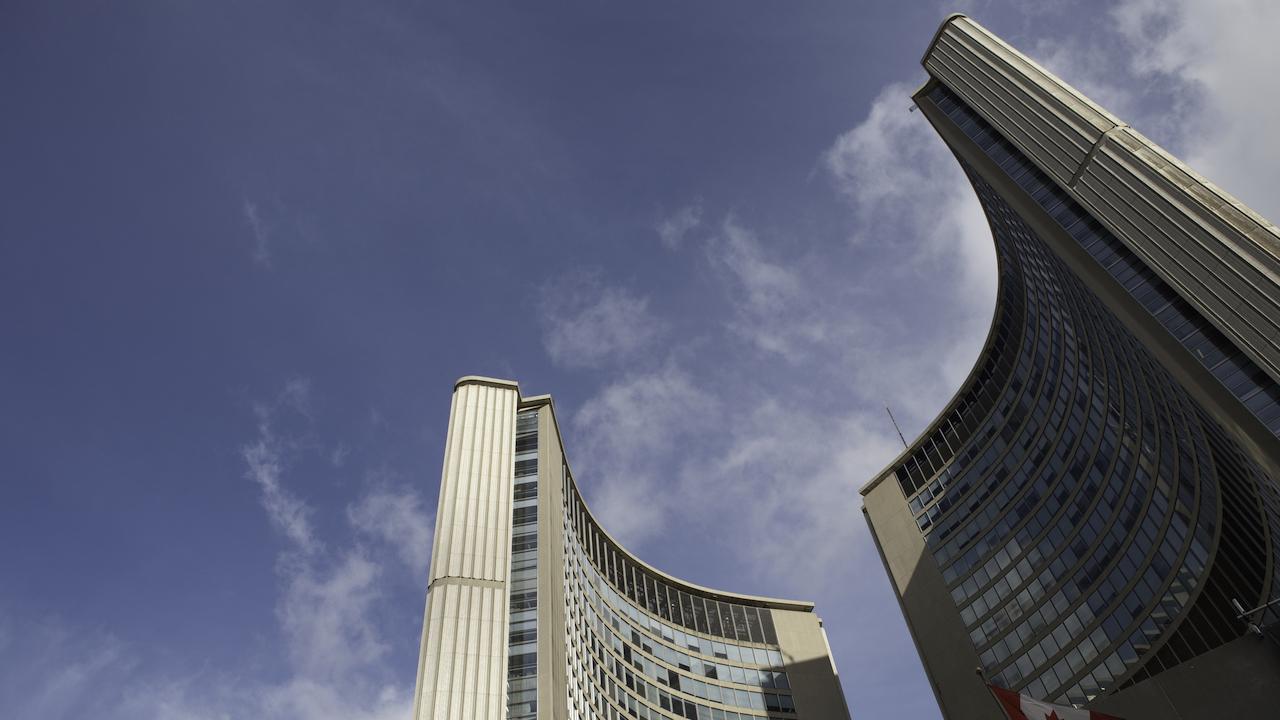In the lead-up to the June 26 mayoral byelection, the Toronto Region Board of Trade is calling on Toronto residents and businesses to focus on the key issues facing the city. This week, Jan De Silva, the board’s president and CEO, is joined by Peter Wallace, former city manager and senior public servant and now senior adviser at Boston Consulting Group and senior fellow at CD Howe Institute, to look at the failing fiscal framework that is holding Toronto back — and Torontonians down.
Read this article on tvo.org, and visit our Mayoral By-Election campaign to learn What's at Stake.
The City of Toronto simply does not have the means to maintain the level of critical services it provides today. The city, because of its sheer size, is a massive-scale service-delivery agent for Ottawa and Queen’s Park policies and programs. But it’s bitten off more than it can chew, fiscally speaking, and just doesn’t have the revenue base to do the job.
After more than a decade of surging population increases, Toronto finds itself choking on growth and struggling to keep regional highways operational, manage the nation’s largest stock of public housing, and welcome more newcomers than any other city in Canada. As a result, provincial and federal goals related to public health, climate, mobility, housing, and supply-chain resiliency are increasingly out of reach.
There is an urgency here.
A recent Ernst & Young report pegged the amount of money Toronto spends on federal and provincial responsibilities such as housing, social services, and health services at a sizeable $1.1 billion per year. On top of that, the city runs the third-largest, but least-subsidized, transit network in North America. Toronto residents (via property taxes) are also responsible for maintaining and repairing two regional highways — the Gardiner Expressway and the Don Valley Parkway — both of which are used daily by people from across the GTA and beyond.
These historic pressures flared during the pandemic and will only be compounded by continued rapid population growth. Immigration is a priority for the federal government, as it fuels national economic growth, and Toronto will receive up to 271,000 additional people in the next two years. We are the biggest destination for newcomers, yet our city receives far less than it needs to provide the services they deserve.
It's become a depressing annual ritual: every winter, the City of Toronto puts forward an underfunded budget then goes cap in hand to Ottawa and Queen’s Park begging for bailouts that can never be counted on. While many municipalities can gradually ease modest annual property taxes into place to match new expenses, Toronto’s funding gap is growing too fast to be covered by property taxes and fees alone. Relying on any new Toronto-based revenue source to cover the shortfall would unfairly saddle Torontonians with the price tag for the outsized role we play in driving national prosperity.
Here's what most of us don’t realize: Toronto does have a choice. The mayor and council could cut to fit, defaulting to a pure municipal model by focusing on local responsibilities and delivering the bare minimum of provincial and federally mandated programs. This would require tough decisions around the TTC, social housing, shelters, community programs, and policing. The result could bring us closer to a balanced budget for Toronto but would unleash a total disaster for the economy — unless the federal and provincial governments quickly stepped in with expanded programs and services of their own.
Promising ever more, as the City has done in the past — or even just sticking with the status quo — without acknowledging the yawning chasm between what Toronto does and what it can afford would be equally dangerous.
The city is at a tipping point.
There is no doubt that Toronto must continue to find efficiencies. Some observers say city services and agencies should be more accountable. They wouldn’t be wrong. Torontonians should demand improved governance across the city and major agencies, such as the TTC, Toronto Community Housing Corporation, and the Toronto Parking Authority. The City of Toronto is a $21 billion enterprise, and the quid pro quo for more dollars should be a city that is better run.
Yet the fact remains: Toronto today is many sizes too large for the “regular fit” fiscal wardrobe. As the fourth-largest city in North America and Canada’s largest by far, Toronto needs a fundamentally different partnership with the federal and provincial governments — one that recognizes Toronto’s disproportionate impact on the country’s economic growth and competitiveness.
Stability will require profound intergovernmental collaboration, with the province and federal governments accepting more accountability for the services they provide — from long-term care and mental-health and addictions supports, to the woefully underfunded criminal-justice system — because when these systems fail, that has impacts on real people and on the fabric of their communities.
When Toronto succeeds, Ontario and Canada succeed. Our next mayor needs a plan to build a new relationship with higher orders of government based on a stable mechanism of funding. We’re calling on voters to consider candidates’ plans on fiscal priorities before advance voting begins June 8. Without a new deal, the long-term stability and competitiveness of the city — and the country — are at stake.
